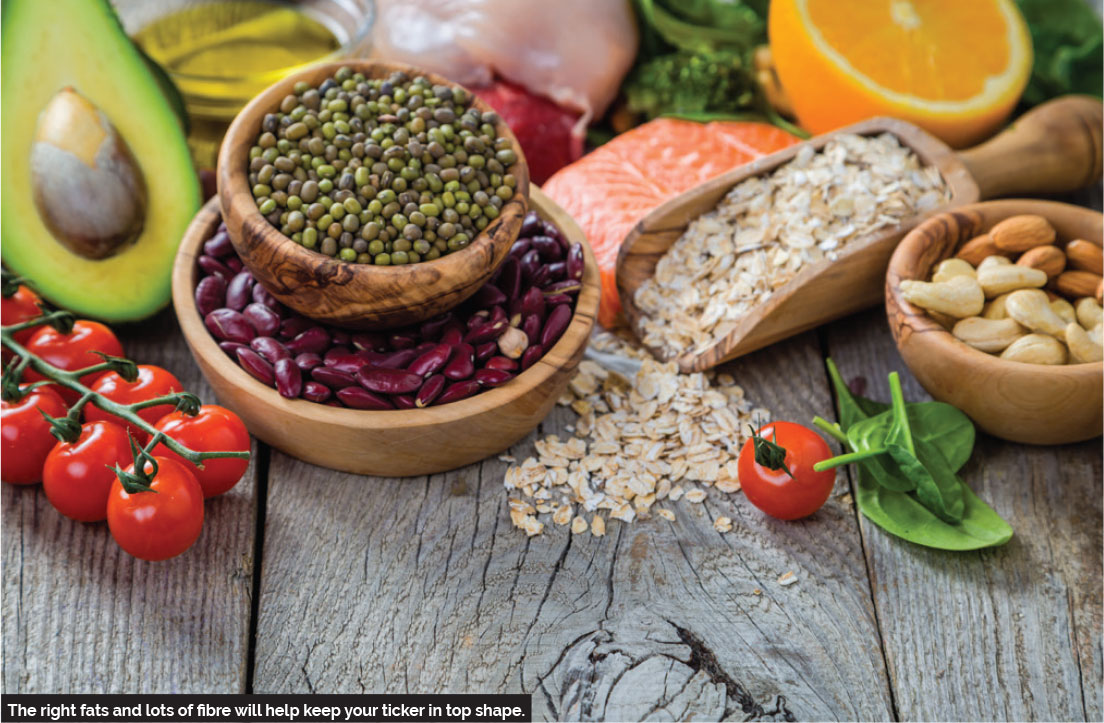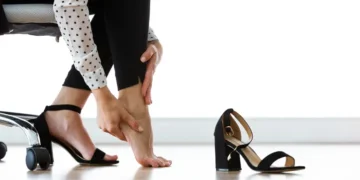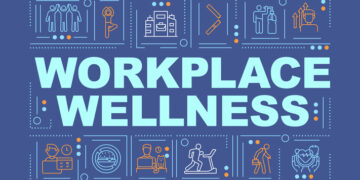MENOPAUSE DOESN’T HAVE TO MEAN DOOM AND GLOOM. ENTER THIS TIME OF LIFE PREPARED AND (MORE IMPORTANTLY) SMILING WITH OUR GUIDE TO YOUR CHANGING BODY.
Turning 40 is a milestone in any woman’s life, and there are a number of physical, emotional, and mental transformations that occur as the body adapts to its shifting biology. The most notable one is menopause, which can only be diagnosed 12 months after the cessation of menstruation (i.e. a full year passes between periods). The stage before menopause, during which hormonal changes start to occur, begins as early as your mid-thirties to your
late fifties, and almost every part of your body is affected, from the health of your bones and heart to your appearance. This transitional period is called perimenopause, and it brings a full gamut of changes as your estrogen levels decline. This decrease leads to hot flashes, a lowered sex drive, sleep problems, irritability, and missed or irregular menstrual periods.
While these and other adjustments are natural as our bodies age, the good news is that there are a lot of ways we can slow down or offset the effects.
BRITTLE BONES
Osteoporosis, a disease that weakens bones, affects women four times more often than it does men. Women lose more bone mass during the years immediately after menopause than they do at any other time in their lives, thanks to lower estrogen levels, and with it comes a lessened ability to grow new bone.
Peak bone mass and density occur around the age of 30, and both decline by a percentage or so each year up until menopause is reached. Following the onset of menopause, bone density loss increases to two to three per cent annually. Sadly, women on average lose 53 per cent of their peak bone density by the time they reach their eightieth birthday.
STAY AHEAD: Resistance training and high-impact exercise, such as running or stair climbing, can help keep your bone health at its best. Foods fortified with calcium and vitamin D can also help you maintain the bone density you do have. In addition, hormone therapy has been shown to reduce the risk and rate of osteoporosis; talk to your doctor to determine your options.
A SLOWER METABOLISM
Metabolism is the process the body uses to convert food into energy. Depending on the source of the energy, the body will use it right away by making it available as blood sugar or it will store it in body tissues, like the liver, muscles, or body fat. Once women turn 40, their metabolism slows about five per cent every 10 years. This is because mitochondria, the structures within cells that convert food to energy, slow down or die off after the age of 40. It then becomes harder to burn calories, and weight gain becomes more prevalent.
STAY AHEAD: It’s never too late to start an exercise program, even if you’ve never entered a gym. Invest in a couple of personal training sessions to learn the basics and make fitness classes a part of your schedule to help keep you on track. But lifelong exercisers still need a kick in the pants every now and again, too. Try signing up for a race or hop on a new piece of equipment to keep your body guessing.

INCREASED RISK OF HEART DISEASE
It’s been shown that after menopause the risk of heart disease rises, possibly because of a natural decline in estrogen levels. And if you have years of unhealthy habits behind you — think smoking, too many late nights, a penchant for highfat meals — your risk is compounded.
STAY AHEAD: Though you can’t do much to naturally reverse your dropping hormone levels, choosing to eat more fish (salmon, sardines, trout, etc.) over other meats is a good heart-health strategy for women of any age. These fish contain omega-3 fatty acids, a type of polyunsaturated fat that can reduce your risk of dying from heart disease by lowering your LDL cholesterol, which can build up and block your blood vessels. The servings of fish you consume will also supply you with zinc, iron, niacin, vitamin B12 and B6, and a whole host of other nutrients you need for good health.

A LOWER LIBIDO
Testosterone has a strong male connotation, but it is present in women as well. Although women do not produce nearly as much of this hormone as men, the tiny amount women do make each day helps to keep emotional levels stable, support a healthy sex drive, and keep the mind clear and focused. This decline may occur a full decade before menopause first appears. Unfortunately, research shows that as a woman’s level of testosterone decreases, it can affect her ability to have an orgasm (a condition known as anorgasmia).
STAY AHEAD: Talk to your doctor about the potential pros and cons of hormone replacement therapy. Exercise is also a natural testosterone booster, especially resistance training.

A CHANGE IN BODY STRUCTURE
Testosterone also helps regulate the placement of muscle and fat on the body, and a lack of this hormone shifts the balance in favour of fat — largely seen around the middle in the stomach, hips, and behind. Low testosterone can also cause you to lose muscle and decrease your ability to build new muscle.
STAY AHEAD: Though the diagnosis sounds grim, keeping up with your healthy diet and exercise regimen will help lessen the effects of any hormonal shifts that occur at this stage of life. If you haven’t yet taken up weights, now’s a good time to start. (And why haven’t you yet, anyway?)
NOT-SOLUSTROUS SKIN
Collagen is an important protein that makes up over 80 per cent of a person’s skin and helps maintain its elasticity to give you a youthful glow. It is one of three major components of skin, along with glycosaminoglycan and elastin. Skin loses its tone with age as collagen wears down, causing wrinkles and fine lines to develop.
Menopausal hormone shifts drive the changes in our skin as we age. Collagen is a building block for skin and keeps it hydrated by stimulating hyaluronic acid, which attracts water molecules and plumps up your visage. Plus, as you enter your forties, cell turnover slows and skin has less resilience from inflammation and dryness; acne is also likely to show up during this period of life.
 STAY AHEAD: Foods such as homemade bone broth or stock can provide you with collagen, though scientists are still debating to what degree eating stock can impact the levels of collagen in the body. Still, it’s worth a shot: try simmering chicken or beef bones for a dietary dose of collagen and gelatin.
STAY AHEAD: Foods such as homemade bone broth or stock can provide you with collagen, though scientists are still debating to what degree eating stock can impact the levels of collagen in the body. Still, it’s worth a shot: try simmering chicken or beef bones for a dietary dose of collagen and gelatin.
 BE PREPARED
BE PREPARED
With every year, scheduling annual exams becomes more important for chronic disease prevention and early detection. Eye and pelvic exams; pap tests; blood pressure, mole, blood glucose, and thyroid checks; and mammograms are all important tests to keep your transitioning body in check and regulated. At any age, practising preventative care is the best way to help you maintain a well-balanced, harmonious body.
















